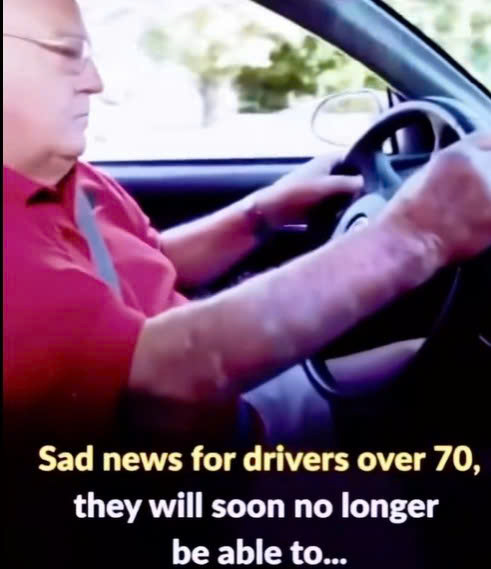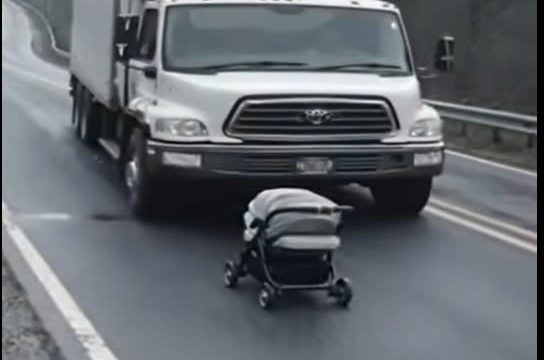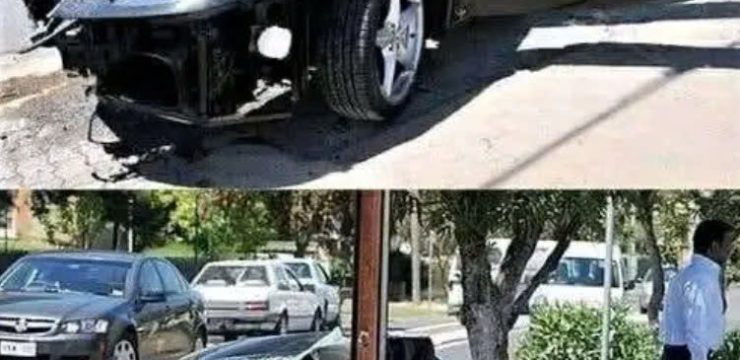Reaching the age of 70 is often seen as an important life milestone—a time when many people slow down, enjoy more freedom, and spend time traveling or exploring new hobbies. But for thousands of drivers across the United Kingdom, turning 70 may bring an unexpected complication that could affect their independence on the road. A lesser-known regulation from the DVLA has created confusion and surprise among older motorists, and many won’t discover the change until they attempt to renew their licence. By then, they may already have lost certain entitlements that they’ve relied on for decades, especially those who enjoy traveling in motorhomes or driving larger vehicles.

Across the UK, experts are raising awareness about a rule that automatically removes specific driving categories from a licence once a driver turns 70. The issue doesn’t affect everyday car use, but it does impact drivers who operate medium-sized vehicles, heavier motorhomes, and minibuses—categories that fall under C1 and D1 entitlements. For retirees who regularly travel in motorhomes or drive community minibuses for clubs, charities, or family outings, these automatic restrictions could be more than just inconvenient. They may disrupt holidays, impact social commitments, and limit mobility at a stage of life when independence matters most.
The Older Drivers Forum, an organization dedicated to helping older motorists stay safe and informed, has tried to shed light on the problem. According to their explanation, anyone turning 70 must renew their licence, but what many do not realize is that the renewal process removes their C1 and D1 categories unless they take extra steps. These categories include vehicles between 3,500kg and 7,500kg, as well as minibuses with up to 16 passenger seats—vehicles that many retirees rely on for travel or volunteer work.
The Forum puts it clearly: “Once you renew your licence at 70 years of age, you will automatically lose the C1 and D1 categories on your licence. If you wish to still hold these, you must complete a D2 form and D4 medical examination report.” This means the responsibility falls entirely on the driver to complete the additional paperwork. Without doing so, their privileges disappear at the moment of renewal.
Drivers with a full C licence, which covers even heavier vehicles, face a similar situation. They may need to retake the required tests if they want to continue operating large vehicles after turning 70. While this rule is intended to ensure safety on the roads, especially for drivers handling heavier vehicles, many older motorists feel blindsided when they discover the requirement. Much of the frustration stems from the lack of widespread information. The rules are published, but they’re not actively emphasized, leaving many drivers unaware of what they may lose.
Anyone wanting to retain these entitlements must follow a few important steps. First, they need to complete a D2 application form, which is available directly from the DVLA. Next, they must submit a D4 medical examination report, which must be completed by a doctor or a medical professional authorized to perform driver fitness assessments. The purpose of the medical check is to confirm that the driver is physically capable of safely operating heavier vehicles. In situations where additional driving tests are required, the driver will need to demonstrate competence to maintain their licence privileges.
For younger drivers, gaining the C1 entitlement requires applying for provisional C1 status and then passing the test. While this process is straightforward, it emphasizes how much responsibility older drivers carry when trying to keep the same privileges they have held for years. For retirees planning road trips, cross-country adventures, or seasonal holidays in a motorhome, overlooking these requirements can cause major disruptions. Without the proper forms and medical clearance, drivers may find themselves unable to drive vehicles between 3,500kg and 7,500kg until entitlements are restored—and in some cases, they may not be restored immediately.
The Older Drivers Forum cautions that the loss of these entitlements happens automatically if drivers renew their licence through the standard process, including online renewal. They stress the importance of completing the additional application before submitting a renewal request. “When you renew your licence at 70,” the Forum notes, “many of the entitlements for other vehicle categories will be lost unless you apply for them. If you use the standard renewal procedure, your C1 entitlement will be suspended.”
For many retirees, this means planning ahead is essential. If someone waits until the last minute or is unaware of the requirement, they could unintentionally lose the ability to drive their motorhome right before a planned trip. In some cases, it may take weeks to complete the medical checks, process paperwork, and receive approval. That delay alone could cause cancelled holidays or financial losses related to bookings. For those who rely on larger vehicles for volunteering or community transportation, the sudden loss of entitlement can also impact organizations, clubs, or groups that depend on them.
The key message from driving experts and older drivers’ organizations is simple: act early. Anyone approaching their 70th birthday should review their licence categories, gather the necessary forms, and schedule medical assessments ahead of time. Doing so ensures the renewal process goes smoothly and prevents unexpected interruptions to travel plans or lifestyle routines.
Turning 70 should be an exciting milestone—not a stressful surprise involving lost driving rights. With proper preparation and awareness, drivers can maintain their independence and continue enjoying the freedom of the open road. Whether planning long-term motorhome adventures, local weekend journeys, or simply wanting to retain long-held driving abilities, taking a proactive approach protects against the hidden challenges of licence renewal.
If you found this information useful, consider sharing it with family members, friends, or anyone nearing age 70 so they can stay informed and prepared for their next chapter behind the wheel.





